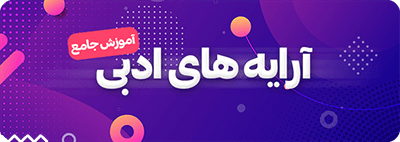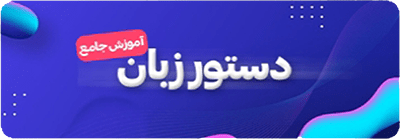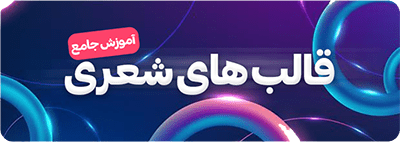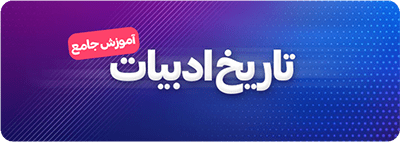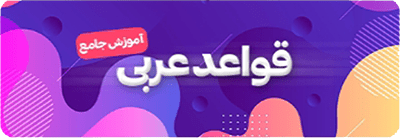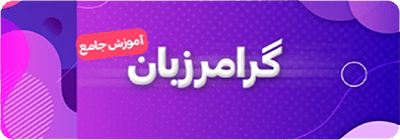جواب فصل 2 Look it Up زبان انگلیسی (3)
تعداد بازدید : 1.41Mپاسخ به تمامی سوالات فصل Look it Up - حل المسائل فصل 2 Look it Up - گام به گام 1401 کتاب زبان انگلیسی (3) - گام به گام کتاب زبان انگلیسی (3) مطابق با آخرین تغییرات کتب درسی
GET Ready صفحه 45 درس Look it Up زبان انگلیسی (3)
پاسخ GET Ready صفحه 45 درس 2
جواب GET Ready صفحه 45 درس 2 زبان انگلیسی (3)
A. Match pictures with dictionary types.
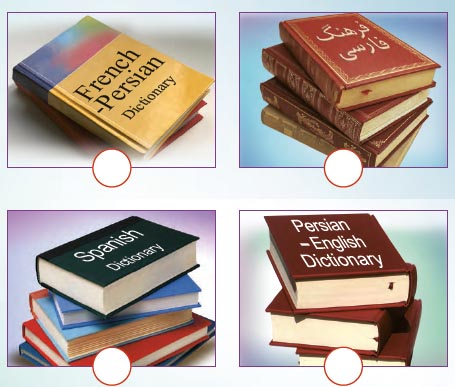
I .A monolingual dictionary
II. A bilingual dictionary
B. Check which type of dictionary you use in the following situations. (An English-Persian dictionary, A Persian-English dictionary, An English dictionary)
1. Translating an English poem
2. Finding the meanings of ‘quit’
3. Searching for the word ‘ساختمان’ in English
4. Looking up the adjective of ‘destroy’
5. Looking up the Persian meaning of “actions speak louder than words”.
C. Check what types of information you cannot find in an English dictionary.
English meaning
Persian meaning
Pronunciation
stories and poems
word types (verb, noun, adjective, etc.)
synonyms and antonyms
A.
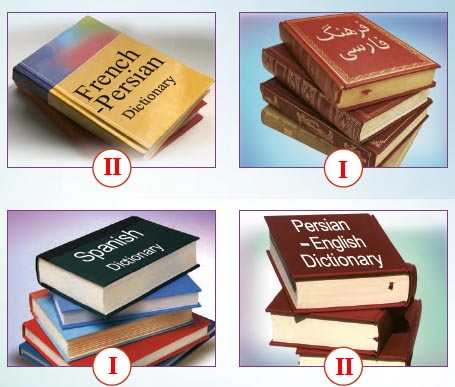
B.
1- An English – Persian dictionary
2- An English dictionary
3- A Persian - English dictionary
4- An English dictionary
5- An English – Persian dictionary
C.
Persian meaning
stories and poems
الف) انواع لغت نامه های ذکر شده را با تصویر (مربوطه) تطابق دهید.
1) تک زبانه
2) دو زبانه
ب) یکی از انواع لغتنامه ها که در هر کدام از موقعیت های زیر استفاده می شود را انتخاب کنید. (لغتنامه انگلیسی به فارسی – لغتنامه فارسی به انگلیسی – لغتنامه انگلیسی)
1- ترجمه شعر انگلیسی
2- پیدا کردن معنی کلمه «quit»
3- جستجو کردن کلمه «ساختمان» در انگلیسی
4- جستجو کردن صفت کلمه «destroy»
5- جستجو کردن معنی فارسی عبارت «actions speak louder than words»
ج) انواع اطلاعاتی که نمی توانید در لغتنامه انگلیسی پیدا کنید را انتخاب کنید.
معنای انگلیسی
معنای فارسی
تلفظ
داستان ها و اشعار
نوع کلمه (فعل، اسم، صفت و ...)
مترادف ها و متضادها
مای درس ، برترین اپلیکیشن کمک درسی ایران
پوشش تمام محتواهای درسی پایه (3)- آزمون آنلاین تمامی دروس پایه (3)
- گام به گام تمامی دروس پایه (3)
- ویدئو های آموزشی تمامی دروس پایه (3)
- گنجینه ای از جزوات و نمونه سوالات تمامی دروس پایه (3)
- فلش کارت های آماده دروس پایه (3)
- گنجینه ای جامع از انشاء های آماده پایه (3)
- آموزش جامع آرایه های ادبی، دستور زبان، قواعد زبان انگلیسی و ... ویژه پایه (3)
Conversation صفحه 45 درس Look it Up زبان انگلیسی (3)
پاسخ Conversation صفحه 45 درس 2
جواب Conversation صفحه 45 درس 2 زبان انگلیسی (3)
Majid is going to choose a suitable dictionary for his English class. He is talking to his English teacher during the break
Majid: Excuse me Mr. Iranmehr, I wonder if you could help me.
Mr. Iranmehr: Sure. How can I help you?
Majid: I’d like some information about a good English dictionary.
Mr. Iranmehr: Oh, well. Have you ever used a dictionary?
Majid: Actually, I haven’t. But I’ve heard that using a good dictionary can really help me learn English better.
Mr. Iranmehr: That’s right. First, I recommend a learner’s dictionary.
Majid: What is a learner’s dictionary?
Mr. Iranmehr: It is designed for foreign students. It also helps them learn English better.
Majid: Is there only one type of it?
Mr. Iranmehr: No, in fact dictionaries have different types, levels, and sizes.
Majid: What type do you suggest?
Mr. Iranmehr: I suppose a monolingual dictionary is more suitable for you, because you can find word information in English.
Majid: And what about levels?
Mr. Iranmehr: Well, there are usually three levels: elementary, intermediate and advanced. For you as a high school student, an elementary one is OK.
Majid: Do I need a small size one?
Mr. Iranmehr: Yes, a pocket dictionary. You can carry it wherever you go.
Majid: Oh, it’s very good. And hmm…, is it expensive?
Mr. Iranmehr: No, such dictionaries are not expensive. By the way, you can use a free online dictionary, too. And also there are some free dictionaries for PCs and apps for smart phones.
Majid: Thanks, that’s a good idea, but I’d like to use a pocket dictionary!
Questions
Answer the following questions orally.
1. What type of dictionary does Mr. Iranmehr recommend?
2. What factors do you consider when you want to choose a dictionary?
3. What type of dictionary do you often use?
1- He recommends a monolingual dictionary.
2- I consider the size, cost, type and level of dictionary.
3- I often use a monolingual dictionary.
مجید می خواهد یک لغت نامه مناسب برای کلاس زبانش انتخاب کند در طول زمان استراحت، با معلم انگلیسی اش صحبت می کند.
مجید: ببخشید آقای ایرانمهر. ممنون میشم اگر من را کمک کنید؟
آقای ایرانمهر: حتما چطوری می توانم کمکت کنم؟
مجید: مایلم اطلاعاتی در مورد یک لغت نامه انگلیسی خوب به دست بیاورم .
آقای ایرانمهر: خب. تا به حال لغت نامه انگلیسی استفاده کرده ای.
مجید: در حقیقت استفاده نکرده ام اما شنیده ام که استفاده کردن از یک لغتنامه خوب می تواند به من کمک کند انگلیسی را بهتر یاد بگیرم.
آقای ایرانمهر: درست است. ابتدا من به شما یک لغتنامه زبان آموز را توصیه می کنم.
مجید: لغتنامه زبان آموز چیست؟
آقای ایرانمهر: این لغتنامه برای دانش آموزان خارجی طراحی شده است. همچنین به آنها کمک می کند تا انگلیسی را بهتر یاد بگیرند.
مجید: فقط یک نوع از آن وجود دارد؟
آقای ایرانمهر: نه، در واقع لغتنامه ها، انواع، سطح ها و اندازه های متفاوتی دارند.
مجید: شما چه نوعی را پیشنهاد می کنید؟
آقای ایرانمهر: من فکر می کنم یک لغتنامه تک زبانه برای تو مناسب تر باشد. زیرا می توانی اطلاعات یک کلمه را به انگلیسی پیدا کنی.
مجید: و در مورد سطح ها چطور؟
آقای ایرانمهر: خب، معمولا سه سطح وجود دارد : مقدماتی، متوسط و پیشرفته. برای تو به عنوان یک دانش آموز دبیرستان، سطح مقدماتی آن خوب است.
مجید: آیا من یک اندازه کوچک از آن را نیاز دارم؟
آقای ایرانمهر: بله، یک لغتنامه جیبی. می توانی هر جایی که میروی، آن را با خود حمل کنی.
مجید: خیلی خوب است و... آیا گران است؟
آقای ایرانمهر: نه، این جور لغتنامه ها گران نیستند. ضمنا تو می توانی از لغتنامه آنلاین رایگان هم استفاده کنی و همچنین چندین لغتنامه رایگان برای کامپیوترهای شخصی و نرم افزارهای گوشی های هوشمند وجود دارد.
مجید: ممنون، فکر خوبی هست ولی من دوست دارم از لغتنامه جیبی استفاده کنم.
بخش سؤالات:
1-آقای ایرانمنش چه نوع لغتنامه ای را پیشنهاد داد؟
او یک دیکشنری تک زبانه را پیشنهاد داد.
2- وقتی می خواهید یک لغتنامه را انتخاب کنید ، چه عواملی را در نظر می گیرید؟
من اندازه، قیمت، نوع و سطح لغتنامه را در نظر میگیرم.
3-شما اغلب چه نوع لغتنامه ای را استفاده می کنید؟
من اغلب یک دیکشنری تک زبانه را استفاده می کنم.
گام به گام کتاب های پایه (3)
گام به گام جامع کتاب فارسی (3)
گام به گام جامع کتاب نگارش (3)
گام به گام جامع کتاب زبان انگلیسی (3)
گام به گام جامع کتاب کتاب کار انگلیسی (3)
گام به گام جامع کتاب سلامت و بهداشت
گام به گام جامع کتاب مدیریت خانواده و سبک زندگی (پسران)
Reading صفحه 52 درس Look it Up زبان انگلیسی (3)
پاسخ Reading صفحه 52 درس 2
جواب Reading صفحه 52 درس 2 زبان انگلیسی (3)
How to Use a Dictionary
A good dictionary gives the user information about words such as spellings, pronunciations and definitions. It also gives examples of how to use the words in sentences correctly. Therefore, it is essential to know how to use a dictionary. In this lesson, we provide you with some helpful tips on how to use a dictionary effectively
1- Choose the Right Dictionary. There are many different types of dictionaries such as learner’s dictionaries, general dictionaries, picture dictionaries, etc. Therefore, first identify your needs. Without choosing the right one you cannot meet your language needs.
2- Read the Introduction. The best way to learn how to use your dictionary effectively is to read its introduction. This section explains issues like how entries are arranged, what information is offered in entries and what abbreviations and pronunciation symbols are used throughout the entries
3- Learn the Abbreviations. Different types of abbreviations are often used in the definitions for a word. This can be confusing if you do not know what the abbreviations stand for.
4- Learn the Guide to Pronunciation. If you immediately jump into using the dictionary without understanding the pronunciation guide, it can be difficult to figure it out
5- Read the Guide Words. These are the two words at the top of each page that show the first and last entries on the page. These words will help you find the word you are looking for in the right letter section
6- Read the Definitions. Once you find an entry, you can find the exact meaning of the word, its pronunciation, part of speech, synonyms, antonyms, and probably its origin
7- Look for Collocations. Learning the meaning of a single word is not usually enough. Through sentence examples, try to learn ‘words in combination’ to expand your vocabulary.
Reading comprehension
A. Read the following paragraph and highlight the most important information.
Sharks are not all the same. In fact, there are nearly 400 different kinds. Most sharks never attack people. Only a special group of sharks can be dangerous. They kill an average of forty people every year. Let’s compare sharks with snakes. Snakes kill about 60,000 people every year. And let’s not forget that people kill 25,000,000 sharks every year.
B. Now go back to the ‘Reading’. It claims that you can be familiar with useful information to use a dictionary more effectively. Highlight parts of the passage that support this claim.
C. Read the ‘Reading’. Generate questions with the following question starters and then answer them.
What
How
Where
A.
There are nearly 400 different kinds.
Most sharks never attack people.
Snakes kill about 60,000 people every year.
And let’s not forget that people kill 25,000,000 sharks every year.
B.
1- Choose the right dictionary
2- Read the introduction
3- Learn the abbreviation
4- Learn the guide to pronunciation
5- Read the guide words
6- Read the definitions
7- Look for collection
C.
What
1- What kinds of dictionaries are there?
There are many different types of dictionaries such as learners, general, picture, etc, dictionaries.
2- What can be confusing when we use a dictionaries?
If we don’t know what the abbreviations stand for.
How
1- How is a good dictionary?
This dictionary gives the user information about words such as spellings, pronunciations, and definitions. It also gives examples of how to use the words in sentences.
2- How can we use our dictionary effectively?
The best way is to read its introduction.
Where
1- Where can we find the first and last entries on each page?
There are two words at the top of each page that show the first and last entries on the page
2- Where can we learn words in combination?
Through sentence examples.
الف) پاراگراف زیر را بخوانید و مهمترین اطلاعات را برجسته کنید.
همه کوسه ها یکسان نیستند در واقع تقریبا 400 نوع مختلف وجود دارد. بیشتر کوسه ها هرگز به افراد حمله نمی کنند. فقط یک گروه خاص از کوسه ها ممکن است خطرناک باشند آنها سالیانه به طور میانگین 40 نفر را می کشند. بیایید کوسه ها را با مارها مقایسه کنیم. مارها سالیانه حدود 60 هزارنفر را می کشند و نباید فراموش کنیم که انسان ها سالیانه 25 میلیون کوسه را می کُشند.
ب) اکنون به «متن» برگردید. ادعا می کند که شما می توانید با اطلاعات مفید جهت استفاده مؤثرتر از یک لغتنامه آشنا شوید. قسمت هایی از متن را که این ادعا را پشتیبانی می کند را مشخص کنید.
1- لغتنامه درست را انتخاب کنید.
2- مقدمه را بخوانید.
3- اختصارات را یاد بگیرید.
4- راهنمای تلفظ را یاد بگیرید.
5- راهنمای لغات را بخوانید.
6- تعاریف را بخوانید.
7- ترکیب ها را جستجو کنید.
پ) «متن» را مطالعه کنید. سژالاتی را با کلمات پرسشی زیر ایجاد کنید و به آن ها پاسخ دهید.
چه
1- چه نوع لغتنامه هایی وجود دارد؟
انواع مختلف زیادی از لغتنامه ها وجود دارد مانند لغتنامه های آموزشی، عمومی، تصویری و ... .
2- چه چیزی می تواند در هنگام استفاده از لغتنامه گیج کننده باشد؟
اگر ندانیم که اختصارات چی هستند.
چگونه
1- یک لغتنامه خوب چگونه است؟
این لغتنامه، اطلاعاتی از قبیل هجاها، تلفظ ها و تعاریف را به کاربر می دهد. همچنین از چگونگی استفاده از کلمات در جمله ها مثال هایی می زند.
2- چطور می توانیم از لغتنامه مان موثرتر استفاده کنیم؟
بهترین راه، خواندن مقدمه ان است.
کجا
1- از کجا می توانیم اولین و آخرین ورودی را در هر صفحه پیدا کنیم؟
در بالای هر صفحه دو کلمه وجود دارد که اولین و آخرین ورودی های صفحه را نشان می دهد
2- کجا می توانیم کلمات ترکیبی را یاد بگیریم؟
از طریق مثال های جمله ای.
Vocabulary development صفحه 55 درس Look it Up زبان انگلیسی (3)
پاسخ Vocabulary development صفحه 55 درس 2
جواب Vocabulary development صفحه 55 درس 2 زبان انگلیسی (3)
One way to figure out the meaning of an unknown word is to look for its relationship with other words in the same family. Even if you cannot figure out the exact meaning, your understanding can be enough to allow you to read on. For example, in this sentence: “We provide you with some helpful information on how to use a dictionary more effectively” you can get an idea of the meaning of the word effectively by recognizing that it is related to the word effect. In this technique which is also known as word attack, looking for word parts can help you read and understand the meaning of complicated words. When you recognize prefixes and suffixes and know what they mean, it will help you work out the meaning of many words you read.
A. Look at the following sentences. Write down at least one other word you know that is related to the bold word.
My job has become increasingly difficult.
He wasn’t very communicative and kept to himself.
The police believe the fire was started accidentally.
The pollution is endangering the crops.
We searched unsuccessfully for a map of Kerman
B. Attack these words to figure out their meanings. Try to write down other words related to them. For example:
disconnection: disconnect/ connection/ connect
unsystematically:
incomprehensible:
unexpectedly:
international:
unchangeable:
A.
1- increasingly: increase / increasing
2- communicative: Communicate / Communication
3- accidentally: Accident / Accidental
4- endangering: Endanger
5- unsuccessfully: Successful / Success
B.
Disconnection: disconnect/ connection / connect / connective
Unsystematically: system / systematic / systematically
Incomprehensible: comprehensible / comprehensive / comprehensibility / comprehension
Unexpectedly: expect / expectant / expectancy / expectable
International: nation / national / nationality / nationalize / nationalist
Unchangeable: change / changeable / changeless / changeling / changing
یک راه برای یافتن معنای یک کلمه ناشناس، جستجوی رابطه آن با کلمه های دیگر از همان خانواده است. حتی اگر نتوانید معنی دقیق را بیابید درک شما می تواند کافی باشد تا به شما اجازه دهد به خواندن ادامه دهید. مثلا در این جمله: ما برای شما اطلاعاتی در مورد چگونگی استفاده از لغت نامه به طور موثرتری فراهم آوردیم.
«ما اطلاعات مفیدی در مورد نحوه استفاده از فرهنگ لغت بیشتر ... در اختیار شما قرار می دهیم»
شما می توانید با درک ارتباط این کلمه یا کلمه effect (موثر)، ایده ای از معنای کلمه effectively (موثرتر) بدست آورید. در این روش که به عنوان حمله به کلمه نیز شناخته می شود، جستجوی بخش های یک کلمه می تواند به شما در خواندن و درک معنای کلمات پیچیده کمک کند. وقتی که پیشوندها و پسوندها را تشخیص می دهید و می دانید آنها چه معنی دارند، این مسئله به شما کمک خواهد کرد تا معنی بسیاری از کلماتی را که می خوانید، متوجه شوید.
الف) به جملات زیر نگاه کنید. حداقل یک کلمه دیگر را که می دانید به کلمه درشت شده مربوط است را بنویسید.
1- کار من به طور فزاینده ای دشوار شده است.
به طور افزاینده: افزایش دادن / در حال افزایش
2- او خیلی اجتماعی نبود و درونگرا بود.
اجتماعی: ارتباط برقرار کردن / ارتباطات
3- پلیس معتقد است که آتش سوزی به طور اتفاقی شروع شده است.
به طور اتفاقی: تصادف / تصادفی
4- آلودگی محصولات کشاورزی را به خطر می اندازد.
به خطر انداختن: به خطر انداختن
5- ما به صورت ناموفق در جستجوی یک نقشه کرمان بودیم.
به صورت ناموفق: موفق / موفق بودن
ب) برای فهمیدن معانی این کلمات با آن ها کلنجار بروید. سعی کنید کلمات دیگر مربوط به آنها را یادداشت کنید. برای مثال:
قطع ارتباط: قطع شدن / ارتباط / وصل کردن / رابط
غیرسیستماتیک: سیستم (دستگاه، نظام) / اصولی (قاعده دار) / بطور سیستماتیک (مرتبا)
غیر قابل درک: قابل درک / همه جانبه (جامع، وسیع) / قابلیت درک / دریافت، فهم (درک مطلب)
برخلاف انتظار: انتظار، انتظار داشتن / در انتظار / توقع (انتظار) / قابل انتظار
بین المللی: ملت / ملی / ملیت / ملی کردن (ملی شدن) / ملی گرا
غیر قابل تغییر: تغییر دادن / تغییرپذیر / بی تغییر / متغیر / در حال تغییر
مای درس ، برترین اپلیکیشن کمک درسی ایران
پوشش تمام محتواهای درسی پایه (3)- آزمون آنلاین تمامی دروس پایه (3)
- گام به گام تمامی دروس پایه (3)
- ویدئو های آموزشی تمامی دروس پایه (3)
- گنجینه ای از جزوات و نمونه سوالات تمامی دروس پایه (3)
- فلش کارت های آماده دروس پایه (3)
- گنجینه ای جامع از انشاء های آماده پایه (3)
- آموزش جامع آرایه های ادبی، دستور زبان، قواعد زبان انگلیسی و ... ویژه پایه (3)
Grammar صفحه 57 درس Look it Up زبان انگلیسی (3)
پاسخ Grammar صفحه 57 درس 2
جواب Grammar صفحه 57 درس 2 زبان انگلیسی (3)
A. Read the following text.
The first Persian dictionary which is still published was compiled more than 900 years ago. Loghat-e Fors was made by Asadi Tusi who was a famous poet in the 5th century. The list of entries has been arranged according to the final letters of the words. There are example sentences which were taken from poetry. The dictionary has synonyms and explanations that were used by young poets. This dictionary has been used widely by the poets who lived after Asadi Tusi. Many words have been added to the first dictionary which Asadi compiled. The dictionary has been published several times and is a valuable treasure of Persian language.
B. Read the following example sentences.
1- The man plays golf.
He lives at No. 10. -> The man who plays golf lives at No. 10.
2- The woman is coming to dinner
You met her yesterday. -> The woman who(m) you met yesterday
3- The cat lives near us.
It was drinking milk. -> The cat which lives near us was drinking milk.
4- I found the keys.
I lost the keys yesterday. -> I found the keys which I lost yesterday.
C. Tell your teacher how ‘relative clauses’ are made.
D. Read the ‘Reading’ and underline all ‘relative clauses’.
E. Read the following paragraph and fill in the blanks with ‘who’ or ‘which’.
Mr. Sanders is a doctor ……………… lives in a city. He works in a village ……………… is near the city. Each morning he goes to the village and comes back home evening. Mr. Sanders usually catches the morning train ……………… enters the station at 7:30. The train ……………… he catches is not very crowded. There are some teachers and workers ……………… also work in the village. Mr. Sanders knows some of them. They sometimes talk about interesting things, like weather and sports. He often reads on the train. He reads books or newspapers ……………… he borrows from the stand in the station. Although his travel to the village takes around 45 minutes, he enjoys every minute of it. He is the type of guy ……………… likes to spend his time wisely
F. Complete the following sentences. Then compare them with your friend.
Example: Rudaki who lived in the 4th century is a famous Persian poet.
1. Ostrich is a bird
2. Our English teacher
3. The notebook
G. Go to Part ‘Grammar’ of your Workbook and do A.
E.
Mr. Sanders is a doctor ….who…. lives in a city. He works in a village ….which…. is near the city. Each morning he goes to the village and comes back home in the evening. Mr. Sanders usually catches the morning train ….which…. enters the station at 7:30. The train ….which…. he catches is not very crowded. There are some teachers and workers ….who…. also work in the village. Mr. Sanders knows some of them. They sometimes talk about interesting things, like weather and sports. He often reads on the train. He reads books or newspapers ….which…. he borrows from the stand in the station. Although his travel to the village takes around 45 minutes, he enjoys every minute of it. He is the type of guy ….who…. likes to spend his time wisely.
F.
1- Ostrich is a bird which doesn’t fly.
2- Our English teacher is a man who is very funny and patient
3- The notebook which is on the teacher’s desk is mine
الف) متن زیر را بخوانید.
اولین لغت نامه فارسی که هوز منتشر می شود بیش از 900 سال پیش تألیف شده است . لغت فرس به وسیله ی اسدی طوسی گردآوری شده است، کسی که در قرن پنجم شاعر معروفی بود. فهرست ورودی ها بر طبق حروف آخر کلمات مرتب شده است. جملات مثالی وجود دارند که از شعر گرفته شده اند . این لغت نامه، مترادف ها و توصیفاتی دارد که به وسیله شاعرهای جوان استفاده شده اند. این لغت نامه به طور گسترده به وسیله ی شاعرانی که بعد از اسدی طوسی می زیسته اند، استفاده شده است. کلمات زیادی به اولین لغت نامه ای که اسدی تألیف کرده، اضافه شده است. این لغت نامه چندین بار منتشر شده است و یک گنجینه با ارزش از زبان فارسی است.
ب) جملات مثالی زیر را بخوانید.
1- مرد گلف بازی می کند.
او در پلاک 10 زندگی می کند. -> مردی که دگلف بازی می کند در پلاک 10 زندگی می کند.
2- زن در حال آمدن برای شام است.
تو او را دیروز دیدی. -> زنی که تو دیروز دیدی در حال آمدن برای شام می باشد.
3- گربه نزدیک ما زندگی می کند.
او شیر می نوشید. -> گربه ای که در نزدیکی ما زندگی می کرد، شیر می نوشید.
4- من کلیدها را پیدا کردم.
من دیروز کلیدها را گم کردم. -> من کلیدهایی که دیروز گم کردم را پیدا کردم.
پ) به معلمتان بگویید که «جمله نسبی» چگونه ساخته می شود.
ت) پاراگراف زیر را بخوانید و جاهای خالی را با who یا which پر کنید.
آقای ساندرز یک دکتر است که در شهر زندگی می کند. او در یک روستا کار می کند که نزدیک شهر است. هر روز صبح او به روستا می رود و در عصر به خانه باز می گردد. آقای ساندرز معمولا قطار صبح را می گیرد که ساعت 7:30 وارد ایستگاه شود. قطاری که او می گیرد، خیلی شلوغ نیست. همچنین تعدادی معلم و کارگر هستند که در روستا کار می کنند. آقای ساندرز بعضی از آنها را می شناسد. آنها گاهی در مورد چیزهای جالبی مانند آب و هوا و ورزش ها صحبت می کنند. او اغلب در قطار مطالعه می کند. او کتاب ها و روزنامه هایی که از دکه ایستگاه قرض گرفته را می خواند. اگرچه که سفرش به روستا حدود 45 دقیقه طول میکشد ولی او از هر دقیقه آن لذت می برد. او شخصی است که دوست دارد زمانش را خردمندانه بگذراند.
ث) جملات زیر را کامل کنید. سپس با دوست خود مقایسه کنید.
مثال : رودکی که در قرن چهارم زندگی کرده، یک شاعر مشهور فارسی است.
1- شترمرغ پرنده ای است که پرواز نمی کند.
2- معلم انگلیسی ما مردی است که بسیار شوخ و صبور است.
3- دفتری که روی میز معلم است، مال من است.
ج) به بخش گرامر کتاب کار بروید و قسمت الف را انجام دهید.
گام به گام کتاب های پایه (3)
گام به گام جامع کتاب فارسی (3)
گام به گام جامع کتاب نگارش (3)
گام به گام جامع کتاب زبان انگلیسی (3)
گام به گام جامع کتاب کتاب کار انگلیسی (3)
گام به گام جامع کتاب سلامت و بهداشت
گام به گام جامع کتاب مدیریت خانواده و سبک زندگی (پسران)
Listening and speaking صفحه 61 درس Look it Up زبان انگلیسی (3)
پاسخ Listening and speaking صفحه 61 درس 2
جواب Listening and speaking صفحه 61 درس 2 زبان انگلیسی (3)
Speaking Strategy
Talking about Imaginary Situations
A. We use ‘conditional type II’ to talk about imaginary situations.
Oh look! It is raining so heavily.
What would you do if it weren’t raining?
Hmm… if it were sunny, I would go to the park. I am really bored.
We can play one of our thinking games, instead.
We could play ‘Smart Kid’ if Sina were home.
This one is also fun. Let’s try it.
You may use the following to talk about imaginations, hopes, and wishes
What would you do if you were me?
What would you do if you had wings?
What would you do if you were a university student?
B. Listen to the following conversations and answer the questions.
Conversation 1
1- Where does Mina live?
2- Why hasn’t Zoreh invited Mina yet?
Conversation 2
1- What did Bijan want to buy?
2- Why didn’t Bijan tell Mehran about the problem?
A.
Conversation 1
This weekend is my birthday I have invited everyone but mina
Why not?
If I were you, I would certainly invite her, as far as I know, she were a close friend at school
Yes but she has moved to another neighborhood if I had her address I would invite her
What a pity if I knew that sooner I could help you
How?
I could check it with my sister she is her mother’s friend.
Can you call her now?
Unfortunately, she is not available ’til (until) next Wednesday sorry.
1- She has moved to another neighborhood.
2- Because she didn’t have her address.
Conversation 2
Are you ok?
I’m thinking about something. What’s wrong?
I have saved some money to buy a new mobile phone but one of my friends is in trouble and need some money what were you do if you were in my shoes?
What is his problem?
I could tell you about it if it weren’t a secret but it’s an emergency.
Ok if I were you I would give him the money. The friend in need is a friend indeed.
1- He want to buy a new mobile phone.
2- Because it were a secret.
صحبت کردن در مورد موقعیت های خیالی
الف) ما از «نوع شرطی 2» برای صحبت کردن در مورد موقعیت های خیالی استفاده کردیم.
اوه، نگاه کن. به شدت باران می بارد.
اگر باران نمی بارید، چه کاری انجام می دادید؟
هممم ... اگر آفتابی بود، من به پارک می رفتم. من واقعا خسته ام.
در عوض، ما می توانیم یکی از بازای های فکریمان را بازی کنیم.
اگر سینا خونه بود، ما می توانستیم بازی "کودک باهوش" را بازی کنیم.
این یکی هم سرگرم کننده است. بیایید امتحان کنیم.
شما ممکن است از موارد زیر جهت صحبت کردن در مورد خیالات (تصورات)، امیدها و آرزوها استفاده کنید.
اگر جای من بودید، چه می کردید؟
اگر بال داشتید، چه می کردید؟
اگر دانشجوی دانشگاه بودید ، چه می کردید؟
ب) به مکالمات زیر گوش کنید و پاسخ سؤالات را بدهید.
مکالمه 1
آخر این هفته تولد من هست من همه رو به جز مینا دعوت کردم.
چرا مینا رو دعوت نکردی؟
اگر من به جای تو بودم، حتما اون رو دعوت میکردم، تا جایی که من می دونم اون دوست صمیمیت توی مدرسه بود،
بله اما او به یک محله دیگر نقل مکان کرده است. اگه ادرس او را داستم اون را دعوت میکردم.
چه حیف اگر این رو زودتر میدونستم می توانستم بهت کمک کنم.
چطور؟
می توانستم با خواهرم این رو بررسی کنم. او (خواهرش) دوست مادر او (مینا) است.
می توانی الان بهش زنگ بزنی؟
متاسفانه او تا چهارشنبه آینده در دسترس نیست. متاسفم.
1- مینا کجا زندگی می کرد؟
او به محله دیگری نقل مکان کرده است.
2- چرا هنوز زهره، مینا را دعوت نکرده است؟
زیرا او آدرسش را پیدا نکرده است.
مکالمه 2
حالت خوبه؟
من دارم در مورد یه چیزی فکر میکنم. مشکل چیه؟
من یه مقدار پولبرای خرید یه گوشی موبایل جدید پس انداز کردم اما یکی از دوستانم به دردسر افتادهاست و به مقداری پول نیاز دارد اگر تو به جای من بودی چیکار میکردی؟
مشکل اون چیه؟
اگه این یه راز نبود در موردش بهت میگفتم. اما یه چیز اضطراریه.
باشه اگر من جای توبودم پول رو بهش میدادم. رفیق زمان نیازمندی یه دوست واقعیه.(این یه ضرب المثلهمنظورش اینه که رفیق واقعی کسی هست که توی سختی پای رفاقتش وایسه و هوای رفیقش روتوی سختی داشته باشه)
1- بیژن چه چیزی را می خواست خریداری کند؟
او می خواست یک تلفن همراه جدید بخرد.
2- چرا بیژن در مورد مشکلش به مهران چیزی نگفت؟
زیرا یک راز بود.
Writing صفحه 63 درس Look it Up زبان انگلیسی (3)
پاسخ Writing صفحه 63 درس 2
جواب Writing صفحه 63 درس 2 زبان انگلیسی (3)
Paragraph
What is a paragraph?
A paragraph is a group of sentences about one idea. A paragraph can (1) give us information, (2) tell us an opinion, (3) explain something to us, or (4) tell us a short story. Every sentence in a paragraph is about the same idea. When you want to write about a new idea, begin a new paragraph.
Paragraph format
Paragraphs have a special shape. In each paragraph, the sentences are grouped together. They come one after another. Remember that sentences in a paragraph start with a capital letter and end with a period (.), question mark (?) or exclamation point (!).
A. Look at the examples below. Choose the one which has the right shape for a paragraph.
Oceans and Lakes
Oceans and lakes have much in common, but they are also quite different. Both are bodies of water, but oceans are very large bodies of salt water, while lakes are much smaller bodies of fresh water. Lakes are usually surrounded by land, while oceans are what surround continents
Both have plants and animals living in them. The ocean is home to the largest animals on the planet, whereas lakes support much smaller forms of life.
Oceans and Lakes
Oceans and lakes have much in common, but they are also quite different. Both are bodies of water, but oceans are very large bodies of salt water, while lakes are much smaller bodies of fresh water. Lakes are usually surrounded by land, while oceans are what surround continents. Both have plants and animals living in them. The ocean is home to the largest animals on the planet, whereas lakes support much smaller forms of life.
Oceans and Lakes
Oceans and lakes have much in common, but they are also quite different. Both are bodies of water, but oceans are very large bodies of salt water, while lakes are much smaller bodies of fresh water. Lakes are usually surrounded by land, while oceans are what surround continents. Both have plants and animals living in them. The ocean is home to the largest animals on the planet, whereas lakes support much smaller forms of life
B. Look at the topic sentences from paragraphs you have seen in Vision 2.
Find the topic and the idea or explanation of the topic.
1) Language is a system of communication.
2) About fifty percent of the world’s languages have fewer than 5000 speakers.
3) Bad habits and addiction can be harmful to health.
4) Art is what people create with imagination and skill.
5) Handicrafts are good examples of the art and culture of a country.
Read the following paragraphs. First find the topic sentence, then circle the topic, and underline the explanation or idea about the topic.
1. Ants are found everywhere in the world. They make their home in buildings, gardens, etc. They live in anthills. Ants are very hardworking insects. Throughout the summers they collect food for the winter season. Whenever they find a sweet on the floor, they stick to the sweet and carry it to their home. Thus, in this way, they clean the floor. Ants are generally red and black in colour. They have two eyes and six legs. They are social insects.
2. The stars are tiny points of light in the space. On a clear night we can see around 2,000 to 3,000 stars without using a telescope. Stars look tiny in the sky because they are far away from the Earth. In ancient times the sky watchers found patterns of stars in the sky. What you learned
3. An online dictionary is one that is available on the Internet or World Wide Web and is accessed through a Web browser using a computer or a mobile device, primarily by typing a term into a search box on the site. Online dictionaries offer immediate, direct access through large databases to a word’s spelling and meanings, plus a host of information, including its spellings, pronunciation, and origin, etc.
4. A hearing device is available for some people suffering from hearing loss. This device uses a magnet. Like other aids, it converts sounds into vibrations and transmits them directly to the magnet, and then to the inner ear, producing a clearer sound. The device helps those with a hearing loss caused by infection or other problems in the middle ear.
C. Write a topic sentence for the following items.
1) sport
2) writing
3) forest
4) smoking
5) firefighters
6) Avicenna
7) clean energy
8) Persian Gulf
A.
Second One is Correct.
B.
1) Language (topic) is a system of communication (idea).
2) About fifty percent of the world’s languages (topic) have fewer than 5000 speakers (explanation).
3) Bad habits and addiction (topic) can be harmful to health and skill (idea).
4) Art is (topic) what people create with imagination (idea).
5) Handicrafts (topic) are good examples of the art and culture of a country (explanation).
1- Ants = topic
2- The stars = topic
3- An online dictionary = topic
4- A hearing device
C.
1) Sport: sport can help your health.
2) Writing: writing is one of the important skill in each language.
3) Forest: forest has important role in making fresh water.
4) Smoking: smoking hurts your skin.
5) Firefighters: firefighters risk their life.
6) Avicenna: Avicenna was a famous philosopher and scientist.
7) Clean energy: clean energy is a safe way for having a healthy environment.
8) Persian Gulf: The Persian Gulf is a Mediterranean sea in western Asia.
یک پاراگراف (بند) چیست؟
یک پاراگراف، مجموعه ای از جملات در مورد یک ایده (هدف) است .
یک پاراگراف می تواند: 1- به ما اطلاعات دهد 2– یک نظریه به ما بگوید 3– چیزی را به ما توضیح دهد یا 4- یک داستان کوتاه به ما بگوید. هر جمله در یک پاراگراف در مورد یک ایده هستند. وقتی که می خواهید در مورد ایده جدیدی بنویسید، پاراگراف جدیدی را شروع کنید.
قالب پاراگراف:
پاراگراف ها قالب خاصی دارند. در هر پاراگراف، جملات با یکدیگر گروه بندی می شوند. آنها یکی پس از دیگری می آیند. به یاد داشته باشید که در یک پاراگراف، جملات با حرف بزرگ شروع می شوند و با یک نقطه، علامت سوال، یا علامت تعجب پایان می یابند.
الف) به مثال های زیر نگاه کنید. یکی را انتخاب کنید که قالب مناسبی برای یک پاراگراف داشته باشد.
گزینه دوم شکل صحیح یک پاراگراف را نشان می دهد .
گزینه اول ساختار یک پاراگراف را ندارد. همچنین در خط دوم نیازی نبود کلمه Both با فاصله از اول خط نوشته شود زیرا پاراگراف نباید عوض شود چون موضوع تغییری نکرده است.
در گزینه سوم نیز دو پاراگراف داریم که نیازی به این کار نبود.
ترجمه متن:
اقیانوس ها و دریاچه ها
اقیانوس ها و دریاچه ها چیزهای مشترک زیادی دارند، اما کاملا هم متفاوت هستند . هر دو بندهایی از آب هستند اما اقیانوس ها بندهایی بسیار بزرگ از آب شور هستند، در حالی که دریاچه ها بندهایی خیلی کوچکتر از آب شیرین هستند. دریاچه ها معمولا به وسیله خشکی احاطه شده اند، در حالی که اقیانوس ها هستند که قاره ها را احاطه کرده اند. هر دو دارای گیاهان و حیواناتی هسنند که در آن ها زندگی می کنند. اقیانوس خانه بزرگترین حیوانات روی سیاره است در حالی که دریاچه ها اشکال بسیار کوچکتر زندگی پشتیبانی می کنند.
ب) به جملات موضوعی که در پاراگراف های دیدگاه 2 دیده اید، نگاه کنید. موضوع و ایده یا توضیح موضوع را بیابید.
1- زبان یک سیستم ارتباطی است.
2- حدود 50 درصد زبان های دنیا کمتر از 5000 گوینده دارد.
3- عادت های بد و اعتیاد می تواند برای سلامتی و مهارت مضر باشد.
4- هنر چیزی است که مردم با تخیل (تصور) خلق می کنند.
5- صنایع دستی، نمونه های خوبی از هنر و فرهنگ یک کشور هستند.
پاراگراف های زیر را بخوانید. ابتدا جمله موضوعی را پیدا کنید، سپس دور موضوع خط بکشید و زیر توضیح یا ایده حول موضوع خط بکشید.
1- مورچه ها در همه جای دنیا یافت می شوند. آن ها، لانه های خود را در ساختمان ها، باغچه ها و ... می سازند. آن ها در لانه های مورچه زندگی می کنند. مورچه ها، حشره های بسیار سختکوشی هستند. در طول تابستان، آن ها برای فصل زمستان، غذا جمع می کنند. هر وقت شیرینی روی زمین پیدا کنند، به شیرینی می چسبند و آن را به لانه خود می رسانند. از این رو، در این راه، آن ها زمین را تمیز می کنند. عموما مورچه ها در رنگ های قرمز و مشکی هستند. آن ها دو چشم و شش پا دارند. آن ها حشرات اجتماعی هستند.
2- ستارگان، نقاط کوچک نورانی در فضا هستند. در یک شب پاک و تمیز، ما می توانیم بدون استفاده از تلسکوپ حدود 2 تا 3 هزار ستاره را ببینیم. ستاره ها در آسمان کوچک به نظر می رسند زیرا آن ها از زمین دور هستند. در روزگاران گذشته، ناظران آسمان، الگوهای ستارگان را در آسمان پیدا می کردند.
3- لغتنامه آنلاین، لغتنامه ای است که در اینترنت یا شبکه جهانی وب در دسترس است و از طریق یک مرورگر وب با استفاده از کامپیوتر یا دستگاه تلفن همراه، در درجه اول با وارد کردن یک اصطلاح در جعبه جستجوی سایت قابل دسترسی است لغتنامه های آنلاین سریعا با دسترسی مستقیم به املا و معانی یک کلمه به علاوه تعداد زیادی از اطلاعات، از جمله هجی ها، تلفظ ها و ریشه و ... آن از طریق پایگاه های بزرگ داده، پیشنهاد می دهد.
4- یک دستگاه شنوایی برای بعضی از افراد که دچار شنوایی کم هستند، در دسترس است. این تجهیز از یک آهنربا استفاده می کند. همانند سایر وسایل کمکی، صداها را به ارتعاش تبدیل می کند و آن ها را مستقیما به آهنربا و بعد از آن به گوش داخلی منتقل می کند و صدای واضحی را تولید می کند. این دستگاه کمک می کند. این وسیله به کسانی که دچار کم شنوایی در اثر عفونت یا سایر مشکلات در گوش میانی می شوند، کمک می کند.
پ) یک جمله موضوعی برای موارد زیر بنویسید.
1) ورزش: ورزش می تواند به سلامتی شما کمک کند.
2) نوشتن: نوشتن یکی از مهارتهای مهم در هر زبان است.
3) جنگل: جنگل نقش مهمی در تولید آب شیرین دارد.
4) سیگار کشیدن: سیگار کشیدن به پوست شما آسیب می رساند.
5) آتش نشان ها: آتش نشان ها جان خود را به خطر می اندازند.
6) ابن سینا: ابن سینا فیلسوف و دانشمند مشهوری بود.
7) انرژی پاک: انرژی پاک یک راه مطمئن برای داشتن یک محیط سالم است.
8) خلیج فارس: خلیج فارس یک دریای مدیترانه ای در غرب آسیا است.
مای درس ، برترین اپلیکیشن کمک درسی ایران
پوشش تمام محتواهای درسی پایه (3)- آزمون آنلاین تمامی دروس پایه (3)
- گام به گام تمامی دروس پایه (3)
- ویدئو های آموزشی تمامی دروس پایه (3)
- گنجینه ای از جزوات و نمونه سوالات تمامی دروس پایه (3)
- فلش کارت های آماده دروس پایه (3)
- گنجینه ای جامع از انشاء های آماده پایه (3)
- آموزش جامع آرایه های ادبی، دستور زبان، قواعد زبان انگلیسی و ... ویژه پایه (3)
What you learned صفحه 68 درس Look it Up زبان انگلیسی (3)
پاسخ What you learned صفحه 68 درس 2
جواب What you learned صفحه 68 درس 2 زبان انگلیسی (3)
A. Listen to the first part of a report.
1- Answer the following questions.
a) What would you do if you had a time machine now?
b) Would you live in a jungle if you were allowed to?
2- Listen again and take note of three questions you hear.
B. Now read the rest.
Have you ever thought of superhuman? What abilities would you like to have if you had superhuman powers? Some may say, I would like to fly if I had superhuman powers. Others may say, I would like to be very strong to help people. Some may say, I would like to be invisible or read people’s minds. What about you? Would you like to be able to do these? Think of being an astronaut; where would you like to go?
3- Underline if clauses.
C. Work in pairs. Ask and answer.
Would you like to fly?
What would you do if you found some money?
Where would you like to travel if you were an astronaut?
A.
Sometimes it is fun to think about things that would never happen. We can ask ourselves questions that don’t have any real answers, for instance, we can think what would I do if I had a time machine to travel with right now. Some people may say I would visit the past if I had that machine or I would visit the future to see the world and people of the future maybe you have thought about this what would I do if I had this ability to talk to animals, what would I say. Some people would prefer to talk with cats or birds but some would not like the idea. They would be a frightened.
a) I would visit the future to see the world and people of the future.
b) No, I wouldn’t like to live in a jungle.
3.
What abilities would you like to have if you had superhuman powers?
I would like to fly if I had superhuman powers.
الف) به بخش اول یک گزارش گوش کنید.
گاهی اوقات جالبه که در مورد چیزهایی هرگز اتفاق نمی افتد فکر کنیم. ما می توانیم از خودمان سؤالاتی که هیچ جواب واقعی ندارد را بپرسیم، برای مثال، ما می توانیم بپرسیم که اگر همین الان ماشین زمان داشتیم به کجا سفر می کردیم. بعضی از مردم ممکن است بگویند که اگر آن ماشین را داشتم به گذشته می رفتم یا برای دیدن مردم و جهان آینده به آینده می روم. شاید شما در این مورد هم فکر کرده باشید که اگر قابلیت حرف زدن با حیوانات را داشتم چه کار می کردم، چه می گفتم. بعضی از مردم ترجیح می دهند با گربه ها یا پرندگان حرف بزنند اما بعضی این ایده را دوست ندارند. آن ها می ترسند.
1- به سوالات زیر پاسخ دهید.
الف) اگر الان یک ماشین زمان داشته باشید، چه می کنید؟
برای دیدن جهان و مردم آینده به آینده می روم
ب) اگر به شما اجازه داده شود، آیا در جنگل زندگی می کنید؟
خیر، من دوست ندارم در جنگل زندگی کنم.
2- مجددا گوش کنید و به سه سؤال که می شنوید توجه کنید.
الف) حالا بقیه را بخوانید.
آیا تا به حال به ابرقهرمانی فکر کرده اید؟ اگر قدرت های فوق بشری داشتید دوست دارید چه توانایی هایی داشته باشید؟ برخی ممکن است بگویند اگر قدرتهای فوق بشری داشتم دوست دارم پرواز کنم. دیگران ممکن است بگویند «من می خواهم برای کمک به مردم بسیار قوی باشم. برخی ممکن است بگویند من می خواهم نامرئی باشم یا ذهن مردم را بخوانم. شما چطور؟ آیا دوست دارید بتوانید این کارها را انجام دهید؟ فکر کنید که یک فضانورد باشید. دوست داری کجا بری؟
3- زیر «جملات if» خط بکشید.
پ) به صورت گروهی تمرین کنید. بپرسید و پاسخ دهید.
آیا دوست دارید پرواز کنید؟
اگر مقداری پول پیدا کردید چه می کنید؟
اگر فضانورد بودید دوست دارید به کجا سفر کنید؟




